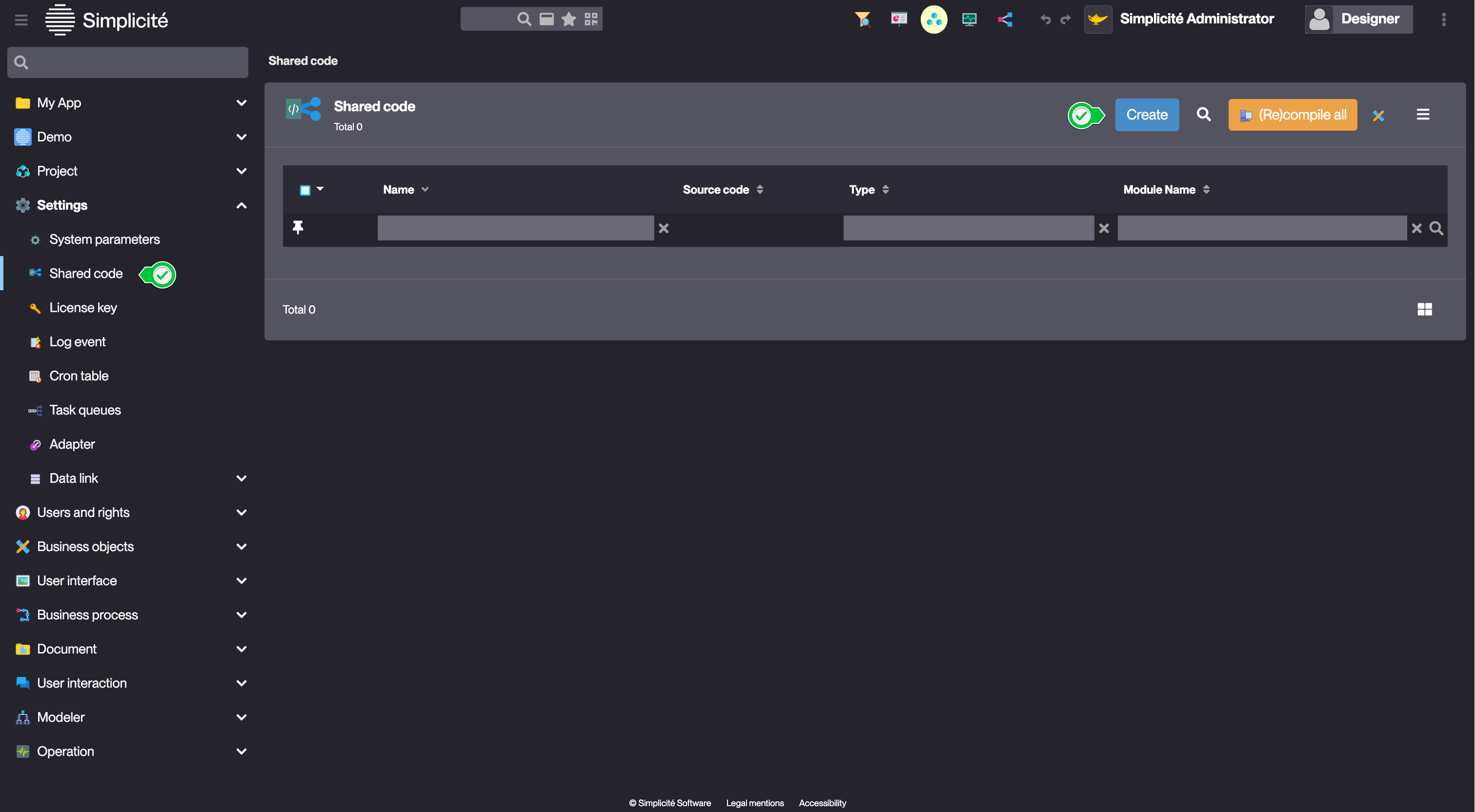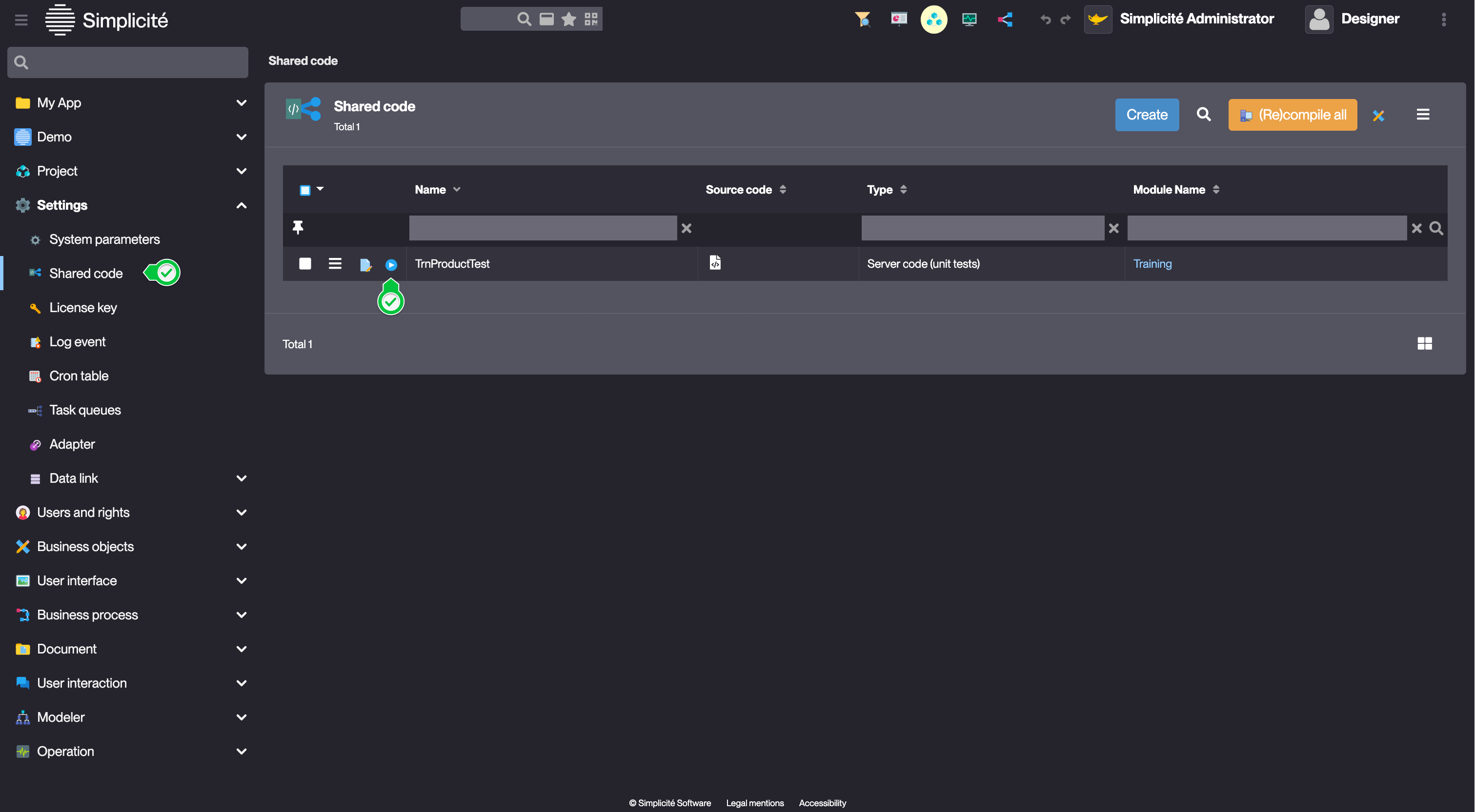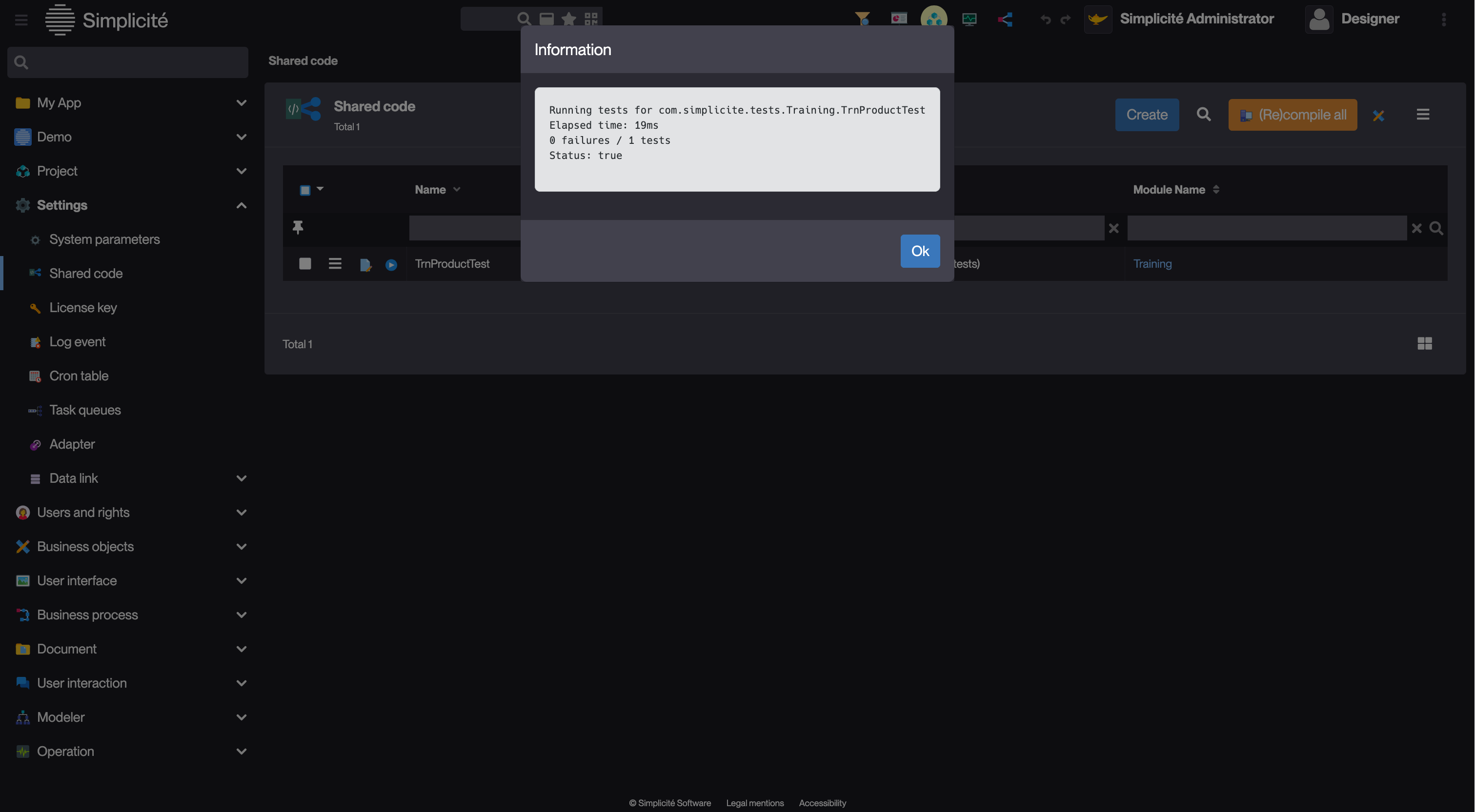Building the "Order Management" Training App : Writing unit tests - Shared code
What is a Shared code?
Shared code is a configuration object that lets you write reusable code that can be accessed across your entire application.
It can be used to write unit tests, extending Platform base classes, writing SQL scripts, etc...
Unit testing the increaseStock method
Previously we created an increaseStock method for the DemoProduct object.
Let's write a unit test for this method.
To do so, follow the steps below:
- In the Settings > Shared code menu, click Create

- Fill in the Shared code fields like so :
- Name : TrnProductTest
- Type : Server code (unit tests)

- Click Save
- Click Edit
- Select Java and click Confirm
Implement the TrnProductTest class like so :
package com.simplicite.tests.Training;
import static org.junit.Assert.assertEquals;
import static org.junit.Assert.fail;
import org.json.JSONObject;
import org.junit.Test;
import com.simplicite.util.Grant;
import com.simplicite.util.ObjectDB;
import com.simplicite.util.ObjectField;
/**
* Unit tests for the TrnProduct business object
* Tests the product stock management functionality
*/
public class TrnProductTest {
/**
* Helper method to get system admin grant for testing
* @return Grant with system admin privileges
*/
public Grant getGrant() {
// Using the system admin grant for testing
return Grant.getSystemAdmin();
}
/**
* Test the increaseStock action
* Verifies that calling increaseStock increases the product stock by 10 units
*/
@Test
public void testIncreaseStock() {
try {
// Create a test product with initial stock of 5
ObjectDB product = getGrant().getTmpObject("TrnProduct");
// Set test product data using JSON
product.setValuesFromJSONObject(new JSONObject()
.put("trnPrdCode", "TEST001")
.put("trnPrdName", "Test Product")
.put("trnPrdStock", 5), true, false, false);
// Save the test product to database
product.save();
// Get reference to stock field and store initial value
ObjectField stockField = product.getField("trnPrdStock");
int initialStock = stockField.getInt(0);
// Execute the increaseStock action on the product
product.invokeAction("IncreaseStock", null);
// Assert that stock increased by exactly 10 units
assertEquals("Stock should be increased by 10", initialStock + 10, stockField.getInt(0));
// Cleanup by removing test product from database
product.delete();
}
catch (Exception e) {
// Fail test and show error if any exception occurs
fail("Test failed: " + e.getMessage());
}
}
}
Then click Save
Adding TRN_SUPERADMIN to the ADMIN Group
In the previous code excerpt, we use Grant.getSystemAdmin() to instantiate TrnProduct. For this to work,
we need to add the TRN_SUPERADMIN profile to ADMIN :
- In Users and rights > Groups, open ADMIN
You might need to remove the module filter if ADMIN doesn't appear in the list
- In the Profile members panel, create TRN_SUPERADMIN Profile in the Training module.
- Clear the platform's cache
Running the unit test
- Log in using
designer - Access the previously created Shared code
- Click Run

Success
